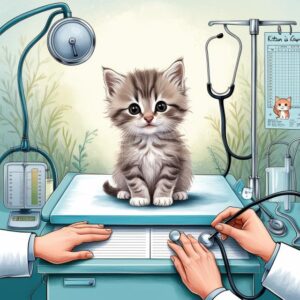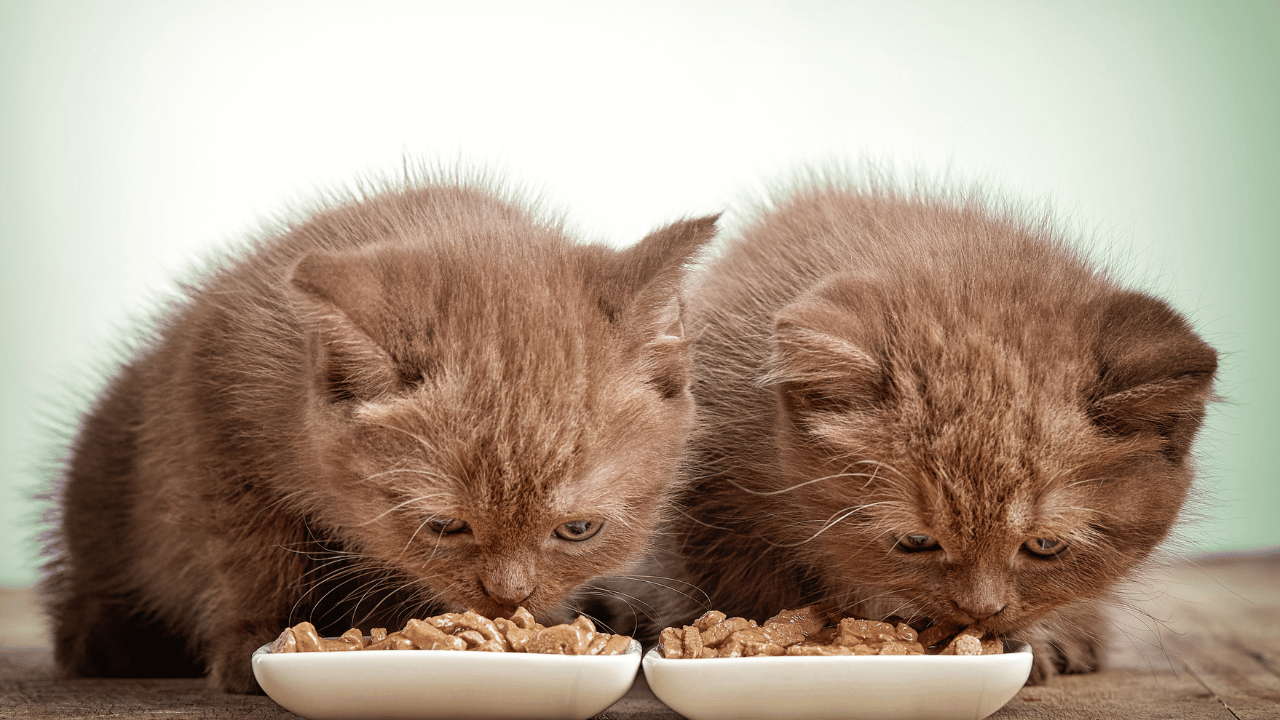When Does A Kitten Start Eating Food and Drinking Water? Getting a new kitten is one of the joys in life. Knowing when kittens leave breastfeeding behind and begin eating solid foods together with water is one of the most critical components in caring for them. This is important for their health and growth.
Also Read: Fluffy Kittens Ultimate Guide to Care, Breeds, and Expert Tips
The Beginning: Kitten Start Eating Food and Drinking Water
Kittens are born requiring their mother’s milk altogether. There are some Nutritional Tips for kittens that give them the fundamental antibodies, proteins, fats, and different supplements for babies to develop and grow properly. Kittens are utterly dependent on their mothers for the first few weeks of life, during which time they only drink milk from her teats or a commercially prepared kitten milk replacer.
Also Read: Erin Kittens – Best Tips For Kittens
Weaning — Kitten Start Eating Food and Drinking Water
Weaning Age:
Weaning usually starts at around four weeks. By now, the kittens will be nursing and ready to eat solid food. This slow transition helps them adapt to the new changes in their diet and ensures their stomachs are prepared for it.

How to Know When Your Kitten is ready:
You will see many signals that may indicate your kitten wants solid food. They will start seeking out the foods you eat, becoming more adventurous about their environments, and hone in on efficient movement. Kittens also use their teeth and chew with their gums to learn to eat solid food.
Food:
A kitten formula is the best when transitioning to solid food. Dry food is often harder to eat and digest than wet kitten stuff, which is generally recommended for that stage. We recommend selecting a Kitten Start Eating Food and Drinking Water and a specific product, as kittens need higher protein and fat content than adult cats. Only a tiny portion of the wet food (mixed with some water or kitten formula) is mixed in increments until it is softly mashed. Eventually, the quantity of liquid will be reduced, and solid food will be offered instead.
Baby-Led Weaning:
Weaning is slow and should only be finished once the baby is around eight weeks old. Observe that you are still trying to offer the mom and dad’s mommy for at least several weeks, or an option will be called for with the kitty formula provided. In a few days to weeks, your Kitten Start Eating Food and Drinking Water should eat dry food at the end of the weaning process and completely off milk.
Also Read: Bootle Feeding Kittens for Better Growth – Kittens Feeding
Important: Drink Some Water
Water Introduction:
Kittens will need a constant supply of fresh water available at all times from the initial weaning stage. Their new diet, which includes solid food, necessitates boosting their water intake. Begin to provide water in a shallow, accessible bowl. Kittens not initially curious about the water might play in it and start drinking. They do so, and this is normal exploratory behaviour.

Hydration is crucial:
Kittens need to stay properly hydrated. Water is essential for digesting and absorbing many nutrients and properly regulating body temperature. Ensure you always have fresh water and that your kitten drinks enough. Seek veterinary attention if you realize your kitten is not drinking water or showing signs of dehydration, like acting lethargic, having dry gums, etc.
Also Read: Maine Coon Cat Kittens – Important Characheristics of Cats
The key to this transition phase
Select the Proper Food:
Use premium kittens Food is recommended for their exact nutritional requirements. Make sure you pick up products labelled “kitten” rather than pet food because this is the ratio of nutrients required for young cats.
Let me know how the transition goes:
And be sure to keep an eye on your pet’s weight and overall health. If your pet has eaten beets, diarrhoea, and vomiting should prompt you to contact a vet. Your kitten can have some light diarrhoea when transitioning food, but not consistently.

Keep a Clean Feeding Area:
Make sure the feeding area is clean and free of bacteria. Wash food and water dishes regularly to prevent contamination, which can lead to health issues.
Relax:
Remember that each kitten is an individual, and some may need more or less time to adapt. Give lots of encouragement and positive reinforcement during the weaning process, which could last a few weeks.
Also Read: Devon Rex Kittens World Most Beautiful Kittens
Conclusion
Knowing when and how to introduce solid food and water is essential to your kitten’s growth process. These Tips for Kittens can help guide you during this phase. Once the kittens are around four weeks of age, gradually wean each one from its mother’s milk and offer commercial-quality kitten food. Similarly, keep an eye on their health—if you have any concerns, contact your vet.
If you treat and observe for the signs mentioned in this cat health information guide, your kitten will flourish as they grow into a healthy, happy adult. Appreciate this unique period in time and value the relationship that is developing between you—going from a tiny, needy kitten to an independent (or mostly) cat friend.
For More Information: Visit the Website

